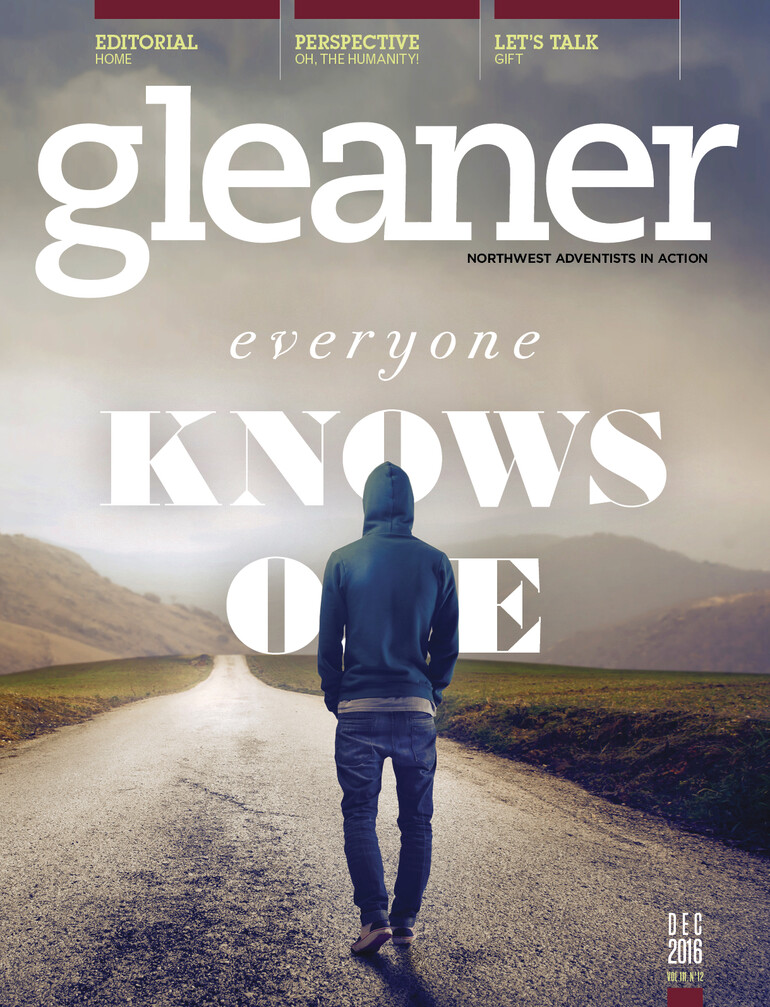Recently I watched a sermon on YouTube in which the speaker made the grand pronouncement he could solve all the issues facing the Adventist Church by doing a few simple things. He stated, “We need to get rid of human experience, human scholarship and human tradition and get back to the Word of God!”
Naturally, all God’s people said “Amen!” I mean, you kind of have to when the speaker ends his line with a bold “… the Word of God!” right?
Sadly, they “amen’d” an impossibility and a heresy.
First let’s examine this idea of somehow being able to step outside of our own humanity. The fact the speaker stood at a pulpit in a sanctuary reading from the KJV Bible means he actively participated in tradition. The Bible he held was translated into English, meaning it involved human scholarship. The English he spoke is governed by grammatical and linguistic rules created by humans to convey meaning. The suit and tie he wore, considered appropriate dress in this context, is a culturally conditioned reality produced by, you guessed it, humans. Experience informed his decision on what to say, how to say it, what to wear and where to wear it.
Sadly, while it sounds spiritual, jettisoning our humanity is not what we have been called to do. While sin and selfishness requires God’s empowering grace, the end result isn’t being less human — it’s being more human.
Among Protestants the primary authority is Scripture, and we recoil at the mention of “tradition.” However, if we can have an honest moment, let’s admit to ourselves that being like Jesus does not mean becoming less human or abandoning human experience, tradition or scholarship. Jesus created us in His image to be sure, but we were still created human (see Gen. 1–2). We have fallen, but we are seeking restoration to become fully human in the sense that God created us to be back in Eden — even Jesus, our example, is referred to by Ellen White as the “second Adam” (Manuscript Releases, vol. 8, p. 39). To leave our humanity behind, to somehow transcend our bodily experience, is a New Age concept, not a biblical one.
Secondly, in the plan of redemption God has chosen to work within human experience and with human beings. The process of inspiration and recording of revelation is both a human and divine enterprise. The incarnation involved Jesus becoming fully human while remaining fully God. Jesus ate, drank, slept, bled and died as a human — which makes Him a High Priest who understands (see Heb. 4:15). Jesus worked through mighty men and women in history to preserve truth, discover new truths, rediscover truth and hand down truth to young generations (aka tradition). Jesus explicitly tells us, “You shall love the Lord your God with all your heart and with all your soul and with all your mind” (Matt. 22:37). Sounds like Jesus intends to work through humanity despite its shortcomings.
All that said, I understand why the speaker, and the congregation, felt impressed by those sentiments. Not every tradition is helpful, not all human experience is trustworthy, and not all scholarship is scholarship. Sin has rendered humanity terribly biased, selfish and individually incomplete to see all the nuances of reality. At times the confusion of disagreements, disunity and apparent disregard for old ways of doing things (tradition even) alarms us, and we search for a voice that can speak ex cathedra for us and give us the right interpretation of God’s Word.
While I believe Jesus gives us enough to understand His character and the plan of salvation, we will always have questions, discussions and even disagreements this side of the Second Coming. As Paul indicates, we now see “through a glass darkly” (1 Cor. 13:12).
Ironically, as irritating as it can be to dwell among disagreeing disciples, there is a value in it. Proverbs tells us that “iron sharpens iron” (27:17). We should not give up meeting with each other (Heb. 10:25). Gathering with others reminds us ours is not the only perspective. It also challenges us to proceed with our sermons, teachings and writings with greater humility.
We have been entrusted with eternal truths, despite our being “earthen vessels” (2 Cor. 4:7) — or, to paraphrase, “cracked pots.” Sometimes we miss things, sometimes we leak, and sometimes we break. Yet Jesus still chooses to work through our experience, scholarship and even traditions. This doesn’t mean we must be less passionate for the truth, just more humble in our presentation of it.










